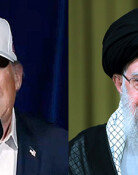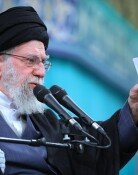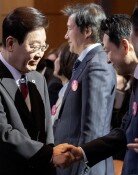The Minjoo Party’s proposal of constitutional reform
The Minjoo Party’s proposal of constitutional reform
Posted February. 03, 2018 07:59,
Updated February. 05, 2018 14:29
After a two-day long general assembly ended Friday, the ruling Minjoo Party has finally confirmed that it supports a four-year, two-term presidency as a new administrative system at a party-wide level. Though the party has branded it as an approach to strengthen decentralism and governance to the public, the majority of party members remained supportive of a four-year, two-term presidency at the general assembly. In addition, party members have also decided to include the Buma Struggle, the May 18 Democracy Movement, the June Struggle and the Candlelight Rallies in the full text of the Constitution. Several terms and provisions complementing the government’s intervention in the economy have been also suggested. For example, economic democratization will become compulsory and not voluntary anymore.
Among these historical events the Minjoo Party has chosen to include in the Constitution, the June Struggle was the single incident that the Constitutional Reform Advice Committee of the National Assembly had proposed without conflicting opinions, though the committee is a pro-ruling party entity consisting of non-experts. Only a few committee members supported the idea of including the candlelight protests as the demonstration took place only a year ago and thus requires more time for proper evaluation. There was also a heated debate among the committee members regarding the party’s efforts to introduce both the Buma Struggle and the May 18 Democratization Movement, both of which occurred around the same time, with an aim of regional balance.
The Minjoo Party has also made the provision 2 of the Article 119 about economic democratization a compulsory term from a voluntary term. The subject provision now states that the government shall impose regulation or control on the economy for the purpose of economic democratization. The party has also highlighted the public concept of land property and stipulated detailed duties involving prevention of land speculation, provision of public housing and fair lease contract. The Constitution, which is the highest law, should give enough room to make choices regarding national regulation or control depending on economic situations. Compulsory assignments could hurt the foundation of a market economy.
In addition, the fuss was that the Minjoo Party tried to revise the Article 4 from “a policy of peaceful unification based on the principles of freedom and democracy” to “a policy of peaceful unification based on the principles of democracy” and revoked its decision. The interpretation of “the principles of freedom and democracy” by the Constitutional Court and the Supreme Court includes liberal democracy and social democracy altogether. However, “freedom” must be added to differentiate between social democracy and totalitarian communism, socialism and people’s democracy.
The priority of a constitutional reform is to refine the imperial presidency, which has been blamed as the biggest problem of the current constitution. The four-year, two-term presidency, supported by the Minjoo Party, would not be the extension of the imperial presidency. At the same time, however, if a president’s rights are not distributed properly, a president could be more empowered than now, failing to fulfill the aim of the reform.
Notwithstanding, the Minjoo Party’s proposal of the constitutional reform will help facilitate discussions about it. The opposition Liberty Korea Party is in sync with the need of the reform, though it seems very much at odds on the upcoming June local elections and a referendum to revise the constitution taking place concurrently. If so, it should present its own proposal and refrain from criticizing the Minjoo Party’s proposal. Timeline of the reform will be the next process. If the ruling party tries to revamp so many things at once and the opposition parties bring the timing issue, it only promotes a hollow message in the absence of a real determination to proceed with.







